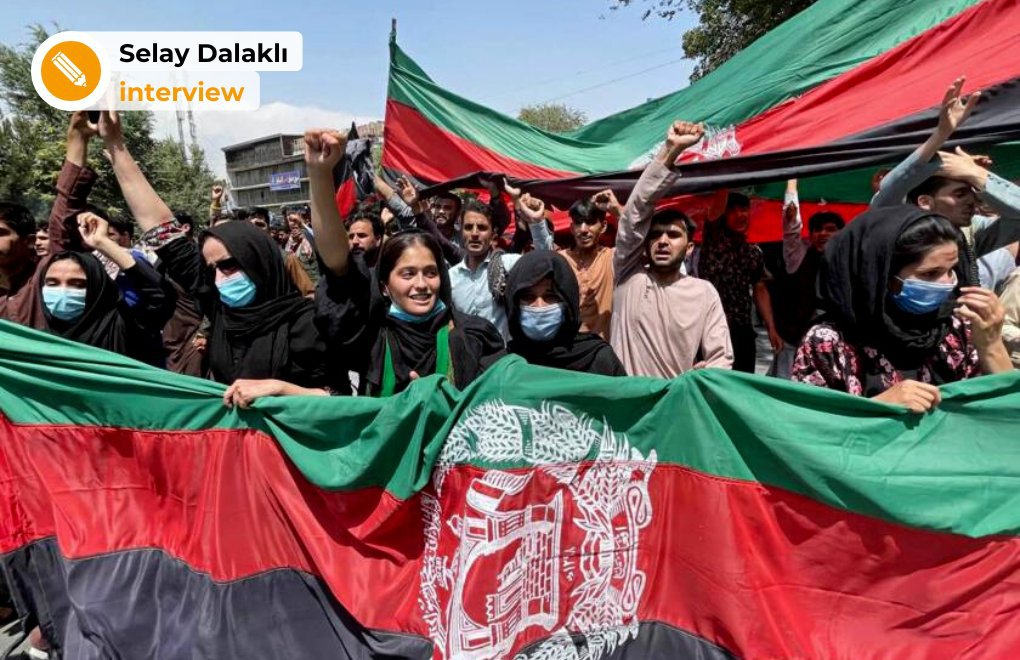* Credit: Mezopotamya Agency (MA)
Click to read the article in Turkish
"As women journalists coming from Afghanistan, we have that responsibility to support our sisters in Afghanistan and tell their stories, at least, and make sure that their struggle and resistance is not buried."
This is how Zahra Nader, the Editor-in-Chief of Zan Times news website, talks about how and for what purpose Zan Times, a women-led newsroom reporting on the situation in Afghanistan, has come into being.
Zan Times was founded after the Taliban took over in August 2021. Reporting in Dari and English, it has a special focus on rights and freedoms in Afghanistan, especially those of women, LGBTI+s and environment.
Nader says, "Half of the society turned into criminals overnight only for the fact of being from a different gender and sex," adding that the intersectionality of their women and journalist have affected them so much:
"As women journalists in Afghanistan, we have always faced discrimination. But I think this is the time that we need to stand up and speak about the truth of how we really live in Afghanistan, particularly now given that being a woman is being a criminal by default."
But how do the women in Afghanistan resist all this?
"Despite how much they are oppressed by the Taliban, they are still trying to raise their voices in many areas, in different venues, maybe in arts or politics," says Nader: "Everywhere you look, you see Afghan women trying to do something to change the situation, to resist it."
In the first part of our interview with journalist and York University postgrad Zahra Nader, we have talked about Zan Times news website and the state of rights and freedoms in Afghanistan under the Taliban rule.
'We asked ourselves, "What is our role?"'
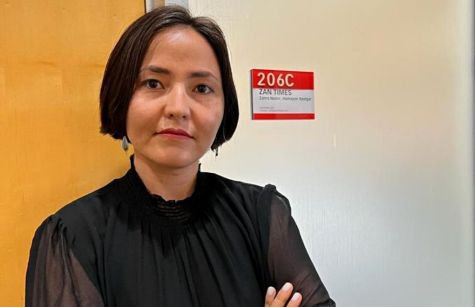
How and for what purpose has Zan Times come into being? And how does it work? Do you have reporters in Afghanistan? What kind of difficulties do you face while reporting on the country?
We had a very difficult year after the Taliban took over in August 2021. People were in shock and pain, seeing that the past history is now repeated for another generation of women in Afghanistan. That was a very, very painful experience. There is this trauma where you are trying not to believe that you are back in a situation where your humanity is basically denied.
When we were faced with this situation as women journalists one of the things that we were talking about was, "What is our role? How can we play a part in what is happening and try to at least change something?"
As women journalists in Afghanistan, we have always faced discrimination. But I think this is the time that we need to stand up and speak about the truth of how we really live in Afghanistan, particularly now given that being a woman is being a criminal by default.
So, in this situation, we really need to first tell the story of what is happening for women in Afghanistan and, especially right now, when women journalists have been erased from most of Afghanistan.
'Taliban first attacks women, then the media'
We know that the Taliban attack women specifically and secondly the media. Women journalists, being at the intersection of this oppression, are hit the hardest because their intersectional identity has affected them so much.
When we do not have women journalists on the ground, we do not really know what is happening in the lives of women in Afghanistan.
Even before the Taliban took over, 95 percent of violence against women was taking place inside the house.
How about now when the Taliban has given men complete authority to ensure that women stay indoors, women do not go out without a male chaperone and they do not leave without wearing a full covering?
Also, the Taliban basically dismantled all the systems of support for women and the victims of domestic violence and gender-based discrimination.
'They became "criminals" because they were women'
Half of the society turned into criminals overnight only for the fact of being from a different gender and sex. Women in Afghanistan now live the lives of prisoners because they have been ordered to stay home, there is no school for them, and all of their basic human rights have been denied.
And what is our role in this situation? We are women journalists and we are able to speak their language. We lived there. We know the culture, we know the sensitivities, we know how it is easy for women to talk to each other, and to talk about what is really happening in their lives. We find this to be a very powerful way of trying to come together first. So, we talk to each other.
As women journalists coming from Afghanistan, we have that responsibility to support our sisters in Afghanistan and to tell their stories, at least, and make sure that their struggle and their resistance is not buried.
We do not have a lot of women's history in Afghanistan. That is because we did not have many women writers able to tell their stories, those narratives for the next generation.
The least we can do in this situation is to tell their stories, the stories of their struggle, their stories of how difficult it is to live as women in Afghanistan when the de facto authority basically banned your existence and your participation in public life.
That is why we exist. This is our responsibility. We want to be there when women are under attack. We want to be there to tell what is happening in their lives.
'We want to be the voice of the marginalized'

From the speech made by Nader at the UN Security Council in November.
We know that Zan Times is a news website with a special focus on rights and freedoms. What issues do you specifically cover or prioritize?
Zan Times covers the human rights situation in Afghanistan with a focus on women, the LGBT community, and environmental issues. The reason why we cover human rights is that we know that human rights are under attack in Afghanistan.
We are trying to prioritize the people who are most marginalized and oppressed. Right now, we see that this category is women, the LGBT community, and also the environment – we do not talk about how much destruction has been caused by all of us.
So, we want to be the voice of the marginalized and we want to cover their situation as much as we can, as much as we have access to and bring their stories to the world. We publish in Dari and English.
While we do have conversations among ourselves about how each of us are suffering or resisting or trying to change things in our own lives in our own countries, we also want to be able to tell those stories of how women resist in the face of the most misogynist political movement to a wider audience. Afghanistan is in the most severe women's rights crisis in the world right now.
So, we want to tell the story of how women resist, how they live in this situation, and what the cost is.
'Women still on the streets despite protest ban'
How do women in Afghanistan resist all this? What do they do to create a space for themselves where they can exercise their rights and freedoms in the face of this oppression?
This is a very good question but a hard one because how do you really speak of rights and freedoms in Afghanistan right now, especially for women? Because there is none.
The Taliban made it illegal to protest without their permission. They made it illegal for women to leave their houses without having a male chaperone. They made it mandatory for women to wear face covering when they are outside the house. Even when they go to visit the doctor, they have to be accompanied by men; otherwise, the doctor will not treat them.
This is the situation that they live in. So, it is very, very difficult to actually say where is freedom and what is rights. There is none. The Taliban are somehow trying to deny women's basic human rights and freedom.
How are Afghan women resisting this? First of all, even though protests have been illegal since September, a month after they took over the government, Afghan women came out to the streets and they still do.
They still continue coming out to the streets, shouting, "We want freedom. We are here." As always, the Taliban are suppressing them with violence. They are shooting in the air, beating women, arresting them, torturing them. We have so many stories of women who were kidnapped and disappeared. We do not know what happened to them. We do have so many stories of women's bodies being found all over the country.
'Women resist in every area where they can'
If we put all these pieces together, we know that the Taliban are trying hard to suppress women's voices to make sure that no critical voice can stand alone and try to bring changes and they know who to target – women.
Yet I really feel so much potential in this new generation of women growing up in Afghanistan, who not only go to the streets and protest, but also gather in houses, trying to continue their resistance in every area that they can.
For example, when a woman is not going out with a face covering or not going out with a male chaperone, she is committing an act of resistance. Because the Taliban have made it a law that women should not be showing their faces and that they should be accompanied by men. If women dare to reject that law, I see that as resistance by women in Afghanistan.
Despite how much they are oppressed by the Taliban, they are still trying to raise their voices in many areas, in different venues, maybe in arts or politics. Everywhere you look, you see Afghan women trying to do something to change the situation, to resist it. (SD)
Tomorrow: 'Feminist movements all around the world should solidarize with Afghanistan'





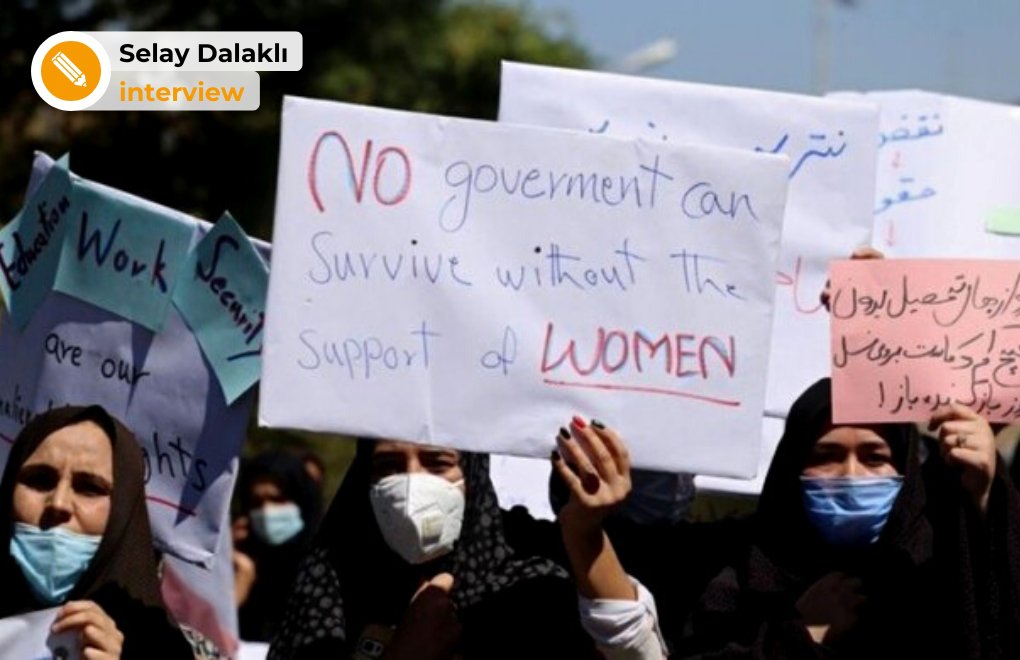
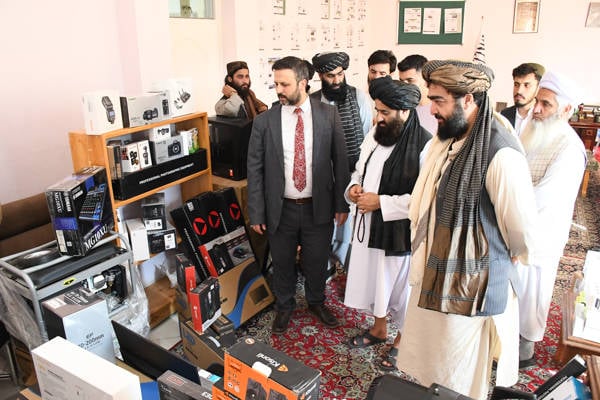
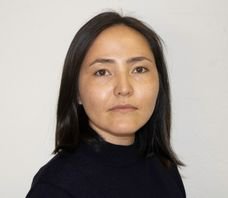

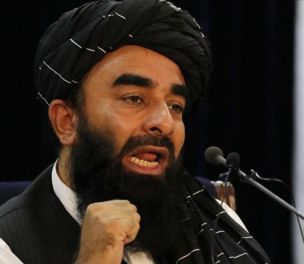

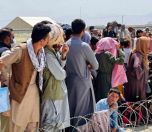
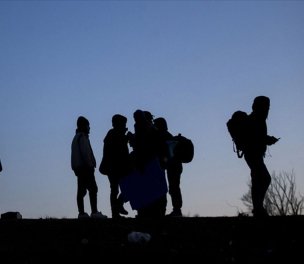
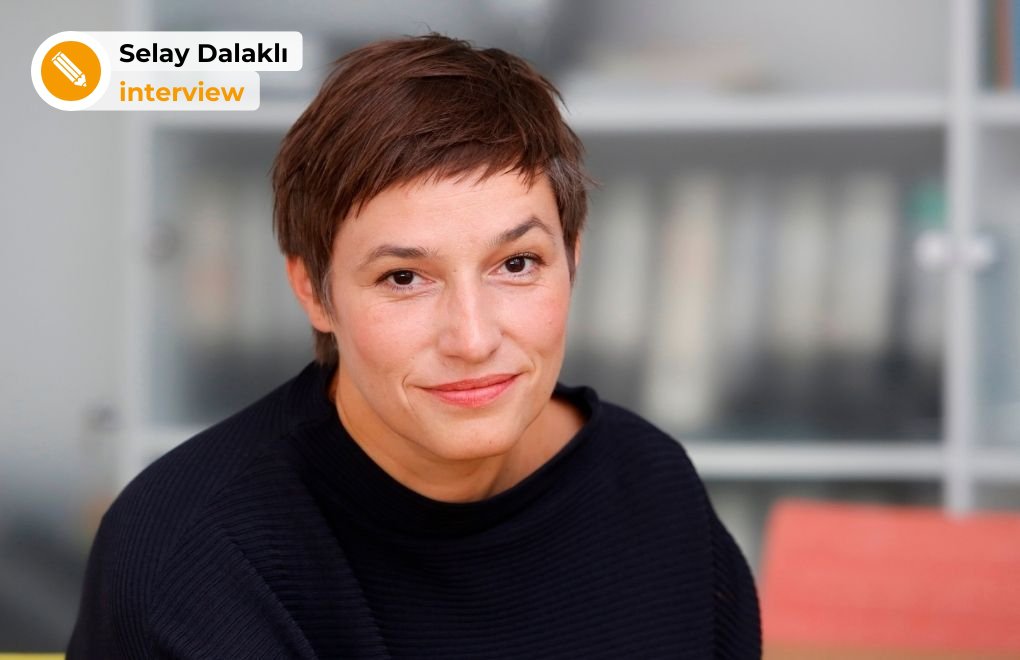
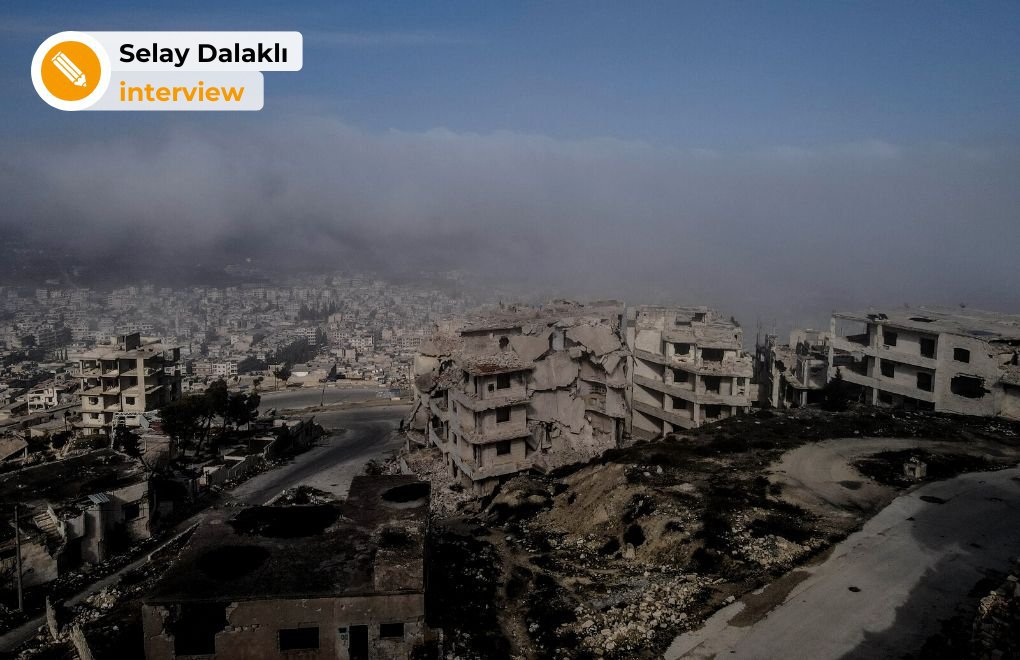
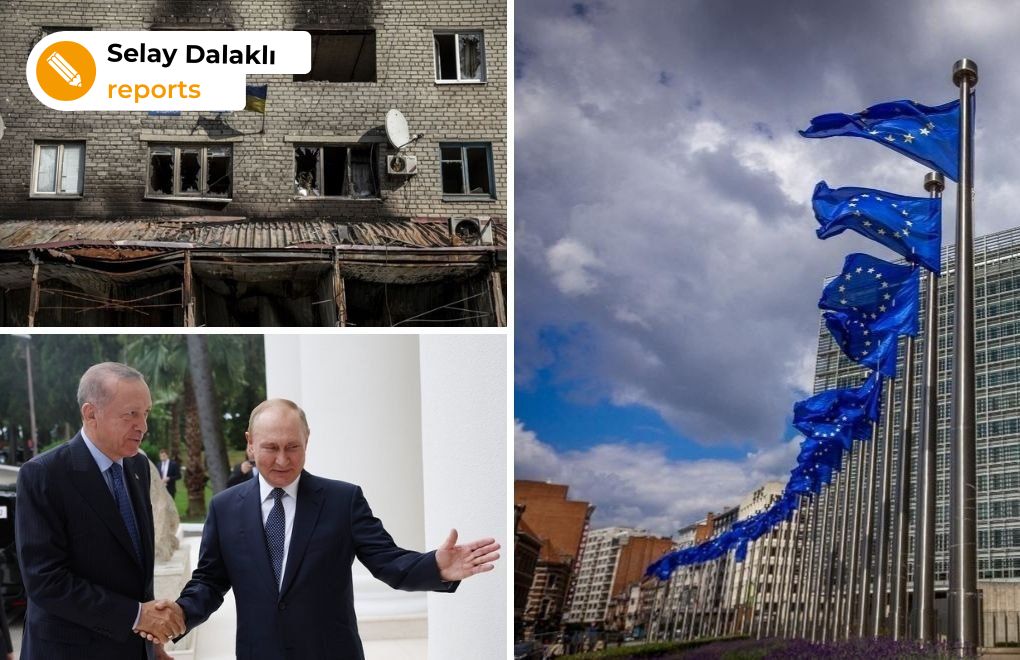
.jpg)
